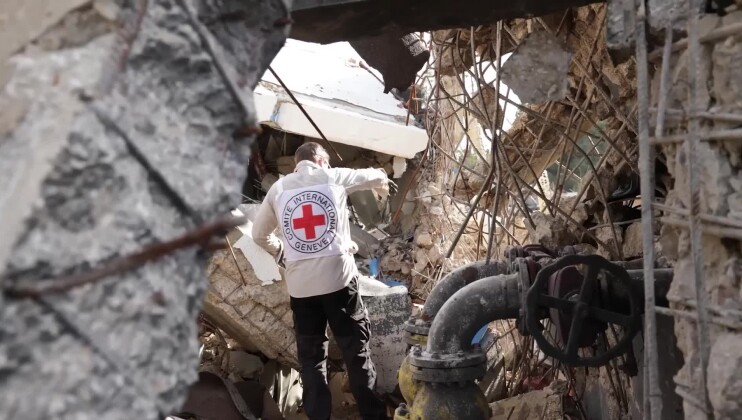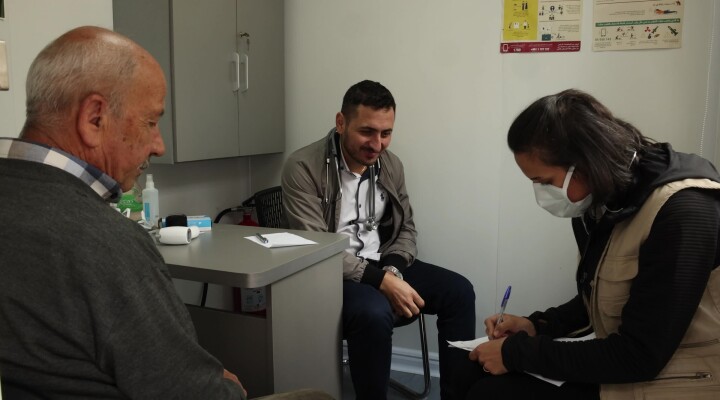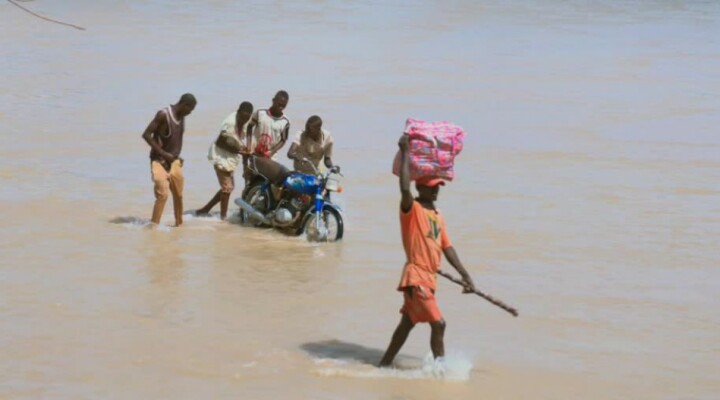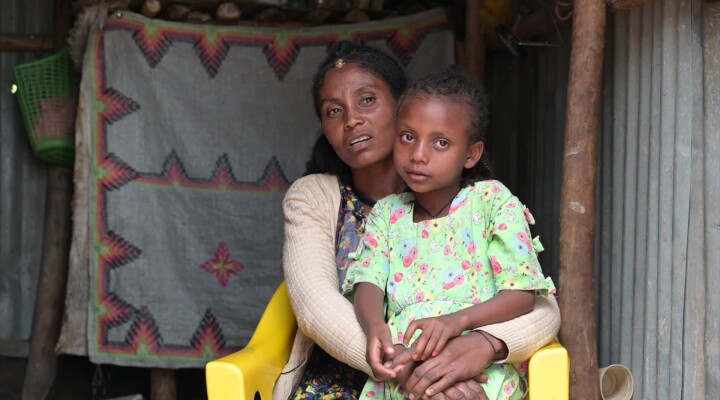Iraq: Help for those fleeing Fallujah
As the battle for Fallujah intensifies, thousands of people have fled the central Iraqi city in the past two weeks. The city, the largest in Anbar Province, has been under siege since early 2014. According to the United Nations at least 50,000 people are still trapped in the heart of the city.
Those who can flee, escape from the outskirts and nearby villages and endure harrowing journeys. They arrive at aid camps in Amiriyat Al Fallujah, 30 kilometres south of the city, tired, hungry, thirsty and scared.
Um Muhannad, escaped at night with 9 other families, most carrying young children and babies.
“We were hiding in the fields. The children were barefoot. There were snakes. Most of the children were only 2 or 3 months old. We had to keep them quiet so that we wouldn’t be heard.”
All of the new arrivals in the camp risked their lives to escape the indiscriminate bombing in Fallujah.
“The fighting was all around us. They didn’t care. They bombed the way they wanted to. There is no consideration for the population”, explains Um Muhannad as she sits in a makeshift tent with one of her children.
But their ordeal is not over. Life in the camp is hard. The heat is terrible, well above 40 Celsius during the day, and most tents do not have fans or the electricity to run them.
C “We are dying of the heat. There is no air conditioners. There are no services at all. Look at the situation says Ghariba, pointing to her dying grand-daughter.
The girl, who is 2 and a half, is barely breathing. Her eyelids flutter – the only sign of life.
The ICRC has been distributing relief aid for the new arrivals. Over two days in June they gave out a month’s supply of food, hygiene kits and household items to 4,200 people.
Since the start of the year the ICRC has given relief aid to 180,000 people across Anbar Province.
In the camps in Amiriyat Al Fallujah, home to those displaced from Fallujah and the nearby city of Ramadi, the needs are immense.
18 year old Hazim was badly burnt as he got caught in an explosion as he and his family fled Fallujah. His father sits patiently by his bedside. During the flight from Fallujah he lost his brother who was caught in crossfire.
Many people have died trying to escape Fallujah.
The ICRC is calling for access to the city, which has been under siege for two years.
“We know that thousands are stuck in the city centre of Fallujah and they are unable to leave. The humanitarian and medical situation is deteriorating and this is extremely worrying for us”, says Malek Baklouti, who is responsible for delivering ICRC relief aid in Anbar Province.
The humanitarian organisation says all sides must do their utmost to protect and spare the civilians of Fallujah. Fallujah, it warns, must not become another Ramadi, which will take years to rebuild after it was severely damaged after intense fighting earlier this year.
Shotlist
Location: Al-Shahabi, east of Fallujah, Anbar Province/Anbar Province/ Amiriyat Al Fallujah camp
Length: 02:45
Format: HD H264 mov
ICRC ref: AV487N
Date: 26/05/2016/2015/02/06/2016 May
NB ARCHIVE FOOTAGE: Al-Shahabi, east of Fallujah, Anbar Province 26/05/2016
Anbar Province (2015)
Copyright: ICRC access all
0:00 – 0:07 explosions in Al Shahabi, east of Fallujah – Anbar Province (stock footage)
0:07 – 0:19 Residents leaving their homes in Anbar Province, waving white flags (stock footage)
0:19 – 0:22 River Euphrates
0:22 – 0:32 Road to the Amiriyat Al Fallujah camp
0:32 – 0:35 Tent in Amiriyat Al Fallujah camp
0:35 - 0:47 Um Mohannad, displaced mother in camp (in Arabic) SOUNDBITE
“We were hiding in the fields. The children were barefoot. There were snakes. Most of the children were only 2 or 3 months old. We had to keep them quiet so that we wouldn’t be heard.”
00:47 – 00.55 Um Mohannad, displaced mother in camp (in Arabic) SOUNDBITE
“The fighting was all around us. They didn’t care. They bombed the way they wanted to. There was no consideration for the population. We asked to leave but they wouldn’t let us leave.
00:55 – 01:07 Um Mohannad, displaced mother in camp (in Arabic) SOUNDBITE
“We struggled with no food, no medicine. If someone got sick he died at home. They told us there was nothing to be done. We remained stuck in the city for 2 years.
01:07 – 01:12 Ghariba and women talking to ICRC
01:12 – 01:20 Ghariba, grandmother in camp (in Arabic) SOUNDBITE
“We are dying of the heat. There are no air conditioners. There are no services at all. Look at the situation”.
01:20 – 01:24 close up of dying grand daughter
01:24 – 02:07 distribution
02:07 - 02:26 burnt boy
02.26 – 02.45 Malek Baklouti, responsible for delivering ICRC relief aid in Anbar Province. SOUNDBITE
“We know that thousands are stuck in the city centre of Fallujah and they are unable to leave. The humanitarian and medical situation is deteriorating and this is extremely worrying for us”.
END



